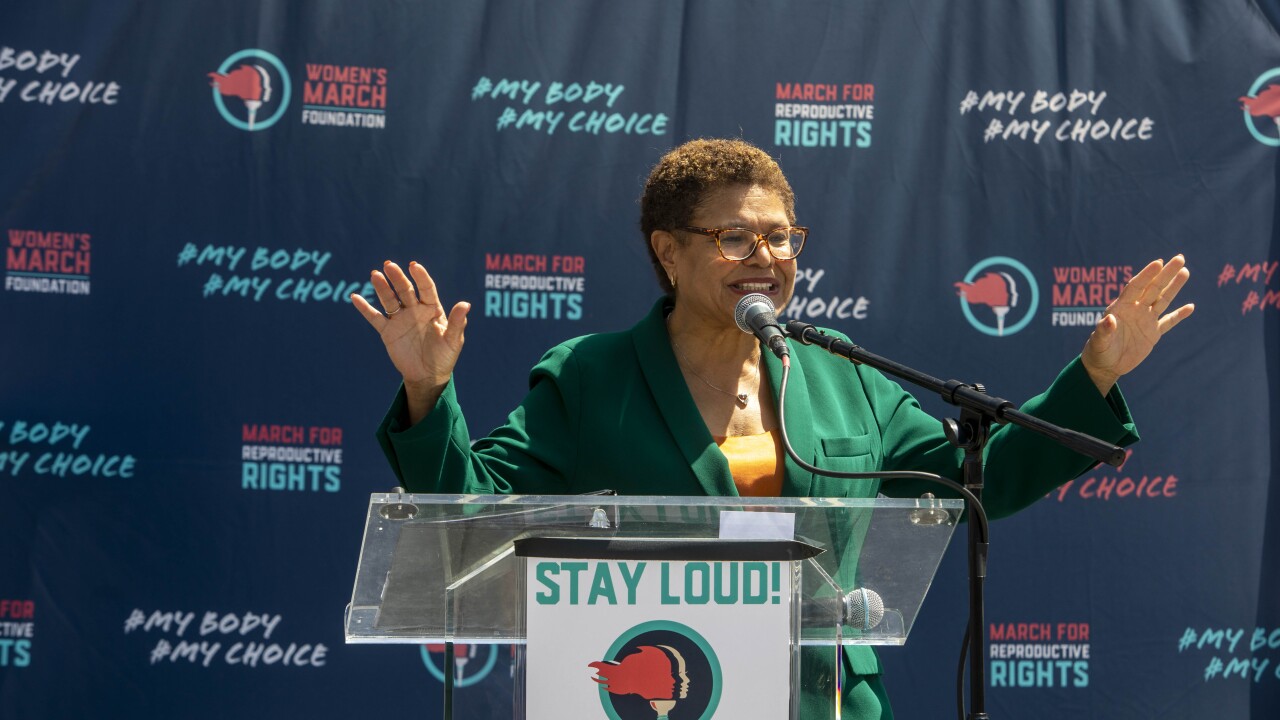
BRADENTON, Fla. — Miami-Dade County next week plans to offer $600 million of aviation revenue bonds to continue financing for a major capital improvement program at Miami International Airport that is nearing completion.
Airport officials also plan to step up financing efforts with next week’s issuance, as well as other deals this year, to take advantage of a provision in the federal economic stimulus bill that allows the county to sell airport debt without being subject to the alternative minimum tax.
Proceeds of the upcoming sale, which prices Tuesday and Wednesday with Citi as the book-runner, will go toward MIA’s $6.3 billion capital improvement plan for building and renovating terminals and concourses, and adding a new runway.
The exact structure of the deal was not set at press time but it is designed to provide level debt service over 30 years. Most of the uninsured deal will be sold as non-AMT and tax-exempt debt with approximately $300 million of refinancing commercial paper, according to MIA chief financial officer Anne Syrcle Lee.
Up to $144 million may be sold as taxable Build America Bonds, but Lee said a final decision on whether to include BABs was expected to be made by today. An Internet road show for investors is scheduled at 3 p.m. Monday.
“We hope the January roll-off effect benefits the transaction,” Lee said about prospects for good pricing next week. “The airport sector and credit spreads narrowing is giving us hope, too.”
MIA is considered an important gateway to and from Latin America. The airport itself is located in unincorporated Miami-Dade County, approximately seven miles west of downtown Miami. It is owned and operated by the county.
Airport officials are closing in on the completion of the multi-year, $6.3 billion capital program. Following next week’s sale there will be approximately $5.6 billion of aviation debt outstanding.
There are plans to step up issuance this year, primarily to take advantage of the non-AMT stimulus provision, Lee said.
Miami-Dade will be back in the market in early February to sell $247.5 million of double-barreled, subordinate-lien airport revenue bonds.
Though the county intends to pay off the bonds with net available airport revenue, they will be sold as general obligation bonds under a referendum authorized by voters in the 1980s.
That debt will support financing for an elevated monorail that will run between the airport and a nearby car rental facility, and an intermodal center where passengers can connect with other forms of transit.
In the third quarter, county officials expects to sell between $400 million and $600 million of general airport revenue bonds to complete the CIP before the AMT abatement expires in December.
“We’re doing the best we can to take advantage of the lack of the AMT because it’s enormously helpful to us,” Lee said.
Unlike many major airports in the country that are struggling because of the recession, declining passenger traffic, and contraction in the volatile airline sector, Miami International saw less than a 1% dip in passenger traffic in 2009.
While the airport is served by 13 scheduled domestic carriers, 31 scheduled foreign flag airlines, and 26 all-cargo carriers, American Airlines and its affiliate American Eagle represent nearly 70% of total passenger traffic, as most rating analysts have noted.
American reduced its operations minimally at Miami compared to its large reductions in services at other airports, according to analysts.
MIA’s bonds will be sold next week with ratings of A from Fitch Ratings, A2 from Moody’s Investors Service, and A-minus from Standard & Poor’s. All three agencies affirmed their ratings on the airport’s outstanding debt.
Fitch revised its outlook on MIA’s debt to stable from negative, while the other two agencies affirmed their stable outlooks primarily because MIA has not suffered a big decline in passengers and flights.
Analysts also noted the capital improvement program is being completed largely on schedule, though some cost increases are anticipated, particularly for security improvements related to a new baggage system.
“The stable rating outlook reflects decreasing concerns that MIA’s traffic base may be subject to near-term contraction on both its domestic and lucrative Latin American markets as a result of global recessionary effects on air travel,” said a report by Fitch analyst Seth Lehman.
“Over the past year, travel levels have been largely unchanged and the airport’s anchor carrier, American Airlines, continues to demonstrate solid support for the hubbing operations at MIA, including planned additions in flights and seating capacity in 2010.”
Lee said she is pleased with the change in Fitch’s outlook to stable.
“We’ve done what we’ve said we’d do,” Lee said. “Things are getting finished.”
First Southwest Co. and Frasca & Associates LLC are the airport’s financial advisers.
Greenberg Traurig PA and Edwards & Associates PA are co-bond counsel. Hunton & Williams LLP and Thomas H. Williams Jr. PL are co-disclosure counsel. Akerman Senterfitt is underwriters’ counsel.
Along with Citi, other underwriting firms in the syndicate are Estrada Hinojosa & Co., Goldman, Sachs & Co., Jackson Securities, JPMorgan, Loop Capital Markets LLC, Morgan Keegan & Co., Morgan Stanley, M.R. Beal & Co., Ramirez & Co., Raymond James & Associates Inc., Rice Financial Products Co., Siebert Brandford Shank & Co., and Stifel, Nicolaus & Co.





